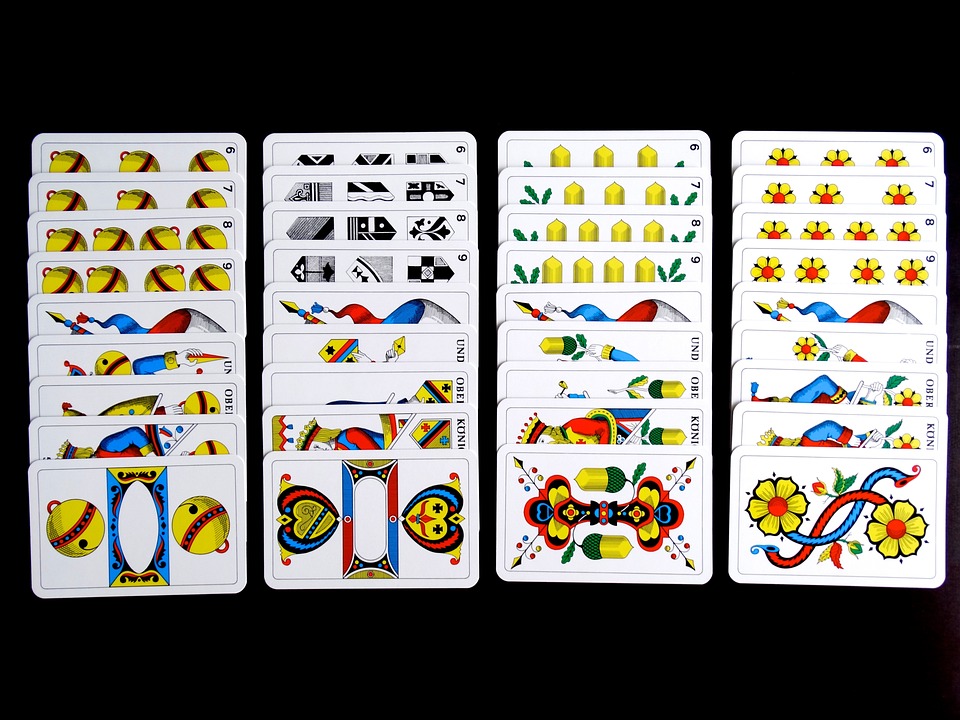Top Tips for Finding the Most Secure Online Casinos in the Philippines

In recent years, online casinos have gained immense popularity in the Philippines, offering players a convenient and exciting way to enjoy their favorite games from the comfort of their homes. However, with the rapid expansion of the online gambling industry comes the need for players to prioritize security. In this article, we will provide you with top tips for finding the most secure online casinos in the Philippines, ensuring that your gaming experience is both enjoyable and safe. 1. Check for Licensing and Regulation One of the first things to look for when evaluating an online casino’s security is its licensing and regulation. In the Philippines, the government regulates online gambling through the Philippine Amusement and Gaming Corporation (PAGCOR). Ensure that the online casino you are considering is licensed by PAGCOR or other reputable international gaming authorities, such as the Malta Gaming Authority or the UK Gambling Commission. A valid license indicates that the casino operates under strict regulations and is subjected to regular audits. 2. Evaluate the Casino’s Reputation Before placing any bets, it’s crucial to research the online casino’s reputation. Check for player reviews and feedback on various forums and review sites. A well-established casino with a good track record is more likely to provide a safe and secure gaming experience. Look for consistent positive comments regarding customer service, prompt payouts, and fair play. Additionally, excessive complaints or negative reviews should raise a red flag. 3. Look for Advanced Security Measures Security should be a top priority for any online casino. Verify that the casino employs advanced security measures to protect player data and financial transactions. Look for casinos that use Secure Socket Layer (SSL) encryption technology, which ensures that all communications between the player and the casino are encrypted and secure. Additionally, check for privacy policies that explain how the casino collects, uses, and protects your personal information. 4. Explore Payment Options and Their Security A secure online casino should offer a variety of trusted and secure payment methods for deposits and withdrawals. Look for options such as credit/debit cards, e-wallets (like PayPal or GCash), and bank transfers. Ensure that the casino does not charge exorbitant fees for transactions and that processing times for withdrawals are reasonable. Additionally, read the casino’s policies regarding payment processing to understand how they protect your financial information. 5. Assess Game Fairness and Randomness A secure online casino must guarantee fair play and randomness in its games. This is achieved through Random Number Generators (RNGs), which ensure that all game outcomes are random and unbiased. Look for casinos that have their games audited by independent testing agencies, such as eCOGRA or iTech Labs. These agencies assess the fairness and legality of gaming operations, providing an additional layer of security for players. 6. Responsive Customer Support Reliable customer support is an essential feature of a secure online casino. Make sure the casino offers multiple channels for communication, such as live chat, email, and telephone support. Test the responsiveness of their customer support team by asking questions or raising concerns. A swift and helpful response indicates that the casino values its players and is committed to addressing their needs. 7. Read the Terms and Conditions Before signing up at any online casino, take the time to read their terms and conditions. This often-overlooked step can prevent potential disputes down the line. Pay attention to sections related to bonuses, withdrawal limits, and account verification processes. Ensure that you understand the rules governing gameplay and transactions so that you can avoid any unpleasant surprises. 8. Mobile Compatibility and Software Providers With the rise of mobile gaming, many players prefer accessing online casinos through their smartphones or tablets. Ensure that the online casino you choose is optimized for mobile devices and provides a seamless gaming experience. Additionally, review the software providers associated with the casino. Reputable developers like Microgaming, NetEnt, and Playtech are known for their secure and fair gaming solutions. Conclusion Finding a secure online casino in the Philippines doesn’t have to be a daunting task. By following these tips—checking for licensing, assessing reputation, evaluating security measures, and understanding payment options—you can significantly reduce your risks and enjoy a safe gaming experience. Remember, your safety should always come first, and choosing a reputable online casino can enhance your overall enjoyment as you explore the vibrant world of online gaming. Always gamble responsibly and make informed decisions to maximize both fun and safety.
The Rise of Secure Online Casinos in the Philippines: What Every Gambler Should Know

In recent years, the landscape of gambling in the Philippines has undergone a significant transformation, particularly with the rise of secure online casinos. As technology advances and digital platforms become more integrated into everyday life, online gambling has emerged as a popular and safe alternative to traditional brick-and-mortar casinos. This article will explore the factors contributing to this rise, the regulations ensuring player safety, and what every gambler should know before diving into the online gaming world. The Shift Toward Digital Gambling The growing popularity of online gaming in the Philippines can be attributed to several factors, including increased internet accessibility, the proliferation of mobile devices, and changing consumer behaviors. With approximately 76 million internet users in the country, online casinos have found a large audience eager to engage in digital gambling. Moreover, the lockdowns and restrictions imposed due to the COVID-19 pandemic accelerated this trend, as many turned to online platforms for entertainment while staying at home. As a result, operators hastened to streamline their services, enhance user experiences, and ensure that their platforms adhered to safety protocols. Regulatory Framework Ensuring Safety One of the critical components of the rise of secure online casinos in the Philippines is the presence of a robust regulatory framework. The Philippine Amusement and Gaming Corporation (PAGCOR) plays a central role in overseeing the gaming industry, including both land-based and online casinos. PAGCOR’s regulations aim to protect players by enforcing strict licensing requirements, ensuring fair play, and promoting responsible gambling practices. In addition to PAGCOR’s oversight, many online casinos seek licenses from reputable international jurisdictions, such as Malta or the United Kingdom. These licenses require operators to adhere to stringent standards, including player protection measures, data encryption, and secure payment processing. Security Features to Look For For gamblers considering diving into the world of online casinos, understanding security features is paramount. Here are some essential aspects that every player should look for to ensure a safe online gambling experience: Licensing and Regulation: Make sure the casino is licensed by PAGCOR or another reputable international authority. This licensure can provide a layer of security and assurance that the casino operates within legal parameters. SSL Encryption: Look for online casinos that use Secure Socket Layer (SSL) encryption technology. This ensures that sensitive data (like personal information and banking details) is encrypted and kept secure from potential hackers. Fair Gaming Practices: Reputable online casinos utilize Random Number Generators (RNGs) to ensure that their games are fair and random. Many also have their games regularly audited by independent third parties to verify their integrity. Responsible Gambling Features: The best online casinos prioritize the safety and well-being of their players. Look for features that promote responsible gambling, such as deposit limits, self-exclusion options, and access to support services. Multiple Payment Options: Secure casinos provide various payment methods, including e-wallets, credit cards, and bank transfers, allowing players to choose their preferred payment pathways that suit their convenience and security needs. Popular Games Available to Filipino Gamblers As online casinos gain traction in the Philippines, the range of games available has expanded tremendously. Gamblers can now enjoy a variety of games, including: Slots: These remain the most popular choice, with themes ranging from classic fruit machines to modern video slots with immersive graphics and captivating storylines. Table Games: Traditional games such as blackjack, roulette, and baccarat are widely available, often offered in multiple variations to keep the gameplay exciting. Live Dealer Games: Many secure online casinos now offer live dealer games, allowing players to interact with professional dealers in real-time, providing a more authentic casino experience from home. Sports Betting: As sports gambling becomes more mainstream, many online casinos now include sports betting platforms where players can wager on their favorite teams. Conclusion: Navigating the Online Casino Landscape The rise of secure online casinos in the Philippines presents an exciting opportunity for gamblers looking for convenience, variety, and safety. With the right knowledge of regulations, security features, and available games, players can confidently navigate this expanding digital landscape. Potential gamblers are encouraged to conduct their research, stay informed about the latest developments in online gaming laws, and pursue responsible gambling practices. As the digital gambling world continues to evolve, being informed will ensure that players can fully enjoy the experience while prioritizing their safety and well-being.
Play Smart: How to Choose Secure Online Casinos in the Philippines

The internet has revolutionized the gambling landscape, bringing the thrill of casinos into the comfort of our homes. In the Philippines, online casinos have surged in popularity, providing access to a wide array of games and betting opportunities. However, with this incredible convenience comes the responsibility of ensuring that your online gambling experience is safe and secure. This article aims to guide you through the essential factors to consider when choosing secure online casinos in the Philippines. 1. Licensing and Regulation Before you start playing at any online casino, check whether it is licensed and regulated by the appropriate authorities. In the Philippines, reputable online casinos typically hold licenses from the Philippine Amusement and Gaming Corporation (PAGCOR). A valid license ensures that the casino operates under strict regulations that protect players. It also signifies that the casino has met certain standards regarding fairness, security, and responsible gaming. 2. Security Measures Security should be a top priority when choosing an online casino. Look for casinos that use advanced encryption technology, such as SSL (Secure Socket Layer) encryption. This technology protects your personal information and financial transactions from potential cyber threats. Additionally, a secure online casino should have a clear privacy policy that explains how your data will be used and protected. 3. Game Fairness and RNG Certification To ensure that you are playing in a fair environment, opt for online casinos that use Random Number Generators (RNG) to determine game outcomes. RNG systems are routinely tested and certified by independent auditing agencies. Check for certifications from organizations such as eCOGRA (eCommerce and Online Gaming Regulation and Assurance) or iTech Labs, which indicate that the casino’s games are fair and unbiased. 4. Payment Methods A secure online casino should offer a variety of safe and convenient payment options for deposits and withdrawals. Look for casinos that provide methods such as credit/debit cards, e-wallets (like Gcash, PayMaya, or Skrill), and bank transfers. Also, check the casino’s withdrawal times, as reputable casinos typically process withdrawals quickly. Always be wary of casinos that impose excessive fees on withdrawals or have complicated withdrawal processes. 5. Customer Support Reliable customer support is crucial when it comes to online gambling. A secure online casino should offer multiple ways for players to contact support, including live chat, email, and phone. Test their customer service by reaching out with questions or concerns. A responsive support team that provides timely and helpful responses is a strong indicator of a trustworthy casino. 6. Responsible Gaming Policies A responsible online casino promotes healthy gambling habits. Ensure that the casino you choose has measures in place to help players manage their gambling activities. This includes options to set deposit limits, self-exclusion features, and links to resources for problem gambling. A casino that prioritizes responsible gaming demonstrates a commitment to player welfare. 7. Reviews and Reputation Before signing up, take some time to research the casino’s reputation. Player reviews and ratings can provide valuable insights into the overall experience of other gamblers. Visit forums, review sites, and social media platforms where players share their experiences. While all online casinos may have a few negative reviews, be cautious of those with consistently poor ratings or numerous complaints. 8. Game Variety and Quality While security is paramount, the gaming experience also matters. Choose an online casino that offers a diverse selection of high-quality games. Look for game providers known for their reliability and innovation, such as Microgaming, NetEnt, or Evolution Gaming. A variety of games enhances your gaming experience, ensuring you have plenty of options to enjoy. Conclusion Choosing a secure online casino in the Philippines requires careful research and consideration of several key factors. By prioritizing licensing, security measures, game fairness, and customer support, you can enjoy a safe and exciting gaming experience. Remember to gamble responsibly, and take advantage of the tools available to maintain control over your gaming activities. With the right precautions in place, the online casino experience can be both thrilling and secure. Play smart and happy gambling!
Navigating Safe Play: Your Guide to Secure Online Casinos in the Philippines

Navigating Safe Play: Your Guide to Secure Online Casinos in the Philippines The world of online gambling has taken the Philippines by storm, offering enthusiastic players a convenient and thrilling way to indulge in their favorite casino games from the comfort of their homes. With the proliferation of online casinos, ensuring a safe gambling experience is more critical than ever. This guide aims to help Filipino players navigate the landscape of secure online casinos, arming them with the knowledge to enjoy their gaming experiences without falling victim to fraud or unethical practices. Understanding the Landscape of Online Gambling in the Philippines The Philippines is one of the few countries in Asia where online gambling is legal and regulated. The Philippine Amusement and Gaming Corporation (PAGCOR) oversees the licensing and regulation of gaming operations, including online casinos. They not only help maintain fair practices but also ensure that players are protected. Before diving into the world of online casinos, it’s essential to check whether a site is licensed by PAGCOR or any other reputable regulatory body. Licensed casinos adhere to strict guidelines designed to protect players and promote responsible gambling. Key Features of Secure Online Casinos Licensing and Regulation: Always choose an online casino that is licensed by PAGCOR or recognized international authorities such as the Malta Gaming Authority (MGA) or the UK Gambling Commission (UKGC). A valid license means the casino operates under strict regulations and has undergone rigorous testing. Secure Payment Methods: A secure online casino should offer a variety of trusted payment options, including credit/debit cards, e-wallets, bank transfers, and cryptocurrencies. Look for sites featuring secure encryption (look for "HTTPS" in the URL) and transparent policies regarding deposits, withdrawals, and transaction fees. Game Fairness: Reputable online casinos use Random Number Generators (RNGs) to ensure that game outcomes are fair and random. It’s a good idea to check for a seal of approval from independent auditing firms, which verify the fairness of the games offered. Customer Support: Seamless customer service is a marker of a reliable online casino. Choose platforms that provide multiple channels of communication, such as live chat, email, and phone support. Quick response times and knowledgeable staff can enhance your gaming experience. Responsible Gambling Features: A commitment to responsible gambling is crucial for any reputable online casino. Players should have access to tools such as deposit limits, self-exclusion options, and resources for gambling addiction. These features indicate that a casino prioritizes player well-being. Player Reviews and Community Reputation: Research the online casino’s reputation by reading player reviews, forum discussions, and expert recommendations. A strong player community can often highlight the good, bad, and ugly about a particular casino. Mobile Compatibility: In today’s digital age, mobile accessibility is vital. Secure online casinos typically offer user-friendly mobile platforms or dedicated apps that maintain security standards and provide a seamless gaming experience. Tips for Safe Online Gambling Set a Budget: Before you start playing, establish a clear budget and stick to it. This helps prevent overspending and ensures that gambling remains a fun and entertaining activity. Be Cautious with Promotions: Online casinos often offer lucrative bonuses and promotions, but be sure to read the terms and conditions. Some offers may come with stringent wagering requirements or limitations on withdrawals. Keep Your Information Secure: Protect your personal and financial information by using strong passwords, secure Wi-Fi connections, and enabling two-factor authentication whenever possible. Stay Informed: Continually educate yourself about the online gambling landscape. Regulations, game types, and casino offerings evolve, as do best practices for safe play. Conclusion As the online casino market in the Philippines continues to expand, players must equip themselves with knowledge to enjoy a safe and secure gaming environment. By understanding the essential features of reputable casinos, practicing responsible gambling, and staying vigilant about online security, you can ensure that your online gambling experience remains both enjoyable and secure. Whether you’re playing poker, slots, or any other casino game, keeping these guidelines in mind will help you navigate the exciting world of online casinos safely. Happy gaming!
A Closer Look at the Regulatory Bodies Overseeing Philippine Casinos

The gambling industry in the Philippines has witnessed significant growth over the past few decades. With numerous casinos catering to both local and international patrons, ensuring fair play, responsible practices, and economic benefits has become imperative. This responsibility falls largely on regulatory bodies that oversee the operation and governance of these establishments. This article delves into the key regulatory authorities in the Philippines and their roles in managing the gaming industry. Philippine Amusement and Gaming Corporation (PAGCOR) The Philippine Amusement and Gaming Corporation (PAGCOR) is the foremost regulatory body governing the Philippine gaming industry. Established in 1977, PAGCOR operates both as a regulator and an operator of casinos. Its dual role is designed to promote transparency and competition while generating revenue for the government. Functions and Responsibilities PAGCOR’s key functions include: Licensing and Regulation: PAGCOR is responsible for issuing licenses to land-based and online casinos, ensuring that they comply with the standards set out in the Philippine Gaming and Amusement Act. This includes the evaluation of financial capacities, technical qualifications, and the integrity of individuals involved in the gaming business. Monitoring and Compliance: The agency actively monitors casinos’ operations, ensuring compliance with legal and ethical standards. This includes overseeing gaming operations, auditing financial records, and investigating reports of irregularities or violations. Revenue Generation: PAGCOR contributes a significant portion of its revenue to the Philippine government, funding public infrastructure projects, education, and health programs. In 2021 alone, PAGCOR contributed over PHP 40 billion to the government, underscoring the economic significance of its operations. Cagayan Economic Zone Authority (CEZA) The Cagayan Economic Zone Authority (CEZA) manages the Cagayan Special Economic Zone and Freeport, which offers a unique regulatory environment for online gambling operators. CEZA serves as a separate entity from PAGCOR, focusing on facilitating and regulating offshore gaming operations. Functions and Responsibilities CEZA’s primary roles include: Issuing Licenses for Online Gambling: CEZA provides licenses to offshore gaming operators, which are poised to cater to foreign markets. These operators are required to adhere to strict regulations to protect the integrity of the industry. Economic Development: CEZA promotes the Cagayan Special Economic Zone as an investment destination, creating jobs and boosting local economies through the influx of online gaming companies. Local Government Units (LGUs) In addition to national regulatory bodies, Local Government Units (LGUs) play a role in overseeing casinos within their respective jurisdictions. These entities ensure that local regulations are followed and that casinos adhere to zoning laws, environmental considerations, and community standards. Functions and Responsibilities The responsibilities of LGUs include: Zoning and Permitting: LGUs have the authority to permit or deny casino developments based on local zoning laws. They assess the impact of casinos on the community, including traffic, public safety, and social implications. Enforcement of Local Regulations: LGUs enforce local laws that govern business operations, health and safety standards, and environmental regulations. Responsible Gaming Initiatives As gambling becomes more accessible, the importance of responsible gaming initiatives has gained recognition. PAGCOR and other regulatory bodies have instituted programs aimed at promoting responsible gambling practices. Functions and Responsibilities Awareness Campaigns: These initiatives include informational campaigns aimed at educating the public about the risks of gambling addiction and providing resources for support. Support Services: Regulatory bodies collaborate with non-government organizations to provide assistance and counseling services for individuals struggling with gambling-related issues. Conclusion The regulatory landscape of the Philippine casino industry is multifaceted, with agencies like PAGCOR, CEZA, and local government units working together to foster a safe, competitive, and economically viable environment. As the industry continues to evolve, the need for robust regulations will remain paramount to ensure both the integrity of operations and the well-being of the community. The collaboration among these regulatory bodies will be crucial in addressing emerging challenges while capitalizing on the opportunities created by the vibrant gaming sector in the Philippines.
Tapping into Technology: The Digital Evolution of Regulated Casinos in the Philippines

Tapping into Technology: The Digital Evolution of Regulated Casinos in the Philippines The Philippines has long held a prominent position in the gaming and hospitality industries of Southeast Asia, with its vibrant casino culture drawing both domestic and international tourists. However, the digital transformation of the sector has accelerated in recent years, spurred on by advances in technology, regulatory adaptations, and changing consumer preferences. In this article, we explore the digital evolution of regulated casinos in the Philippines, highlighting the innovative technologies reshaping the gaming landscape and how these developments are benefiting both operators and players. The Rise of Online Gaming Platforms With the rapid advancement of internet technology, online gaming platforms have seen a meteoric rise, particularly during the pandemic. As traditional brick-and-mortar casinos experienced restrictions and closures, many operators pivoted to online gaming solutions. Licensed and regulated online casinos provide a safe and secure environment for players, ensuring compliance with local laws while offering a diverse range of gaming options. The Philippine Amusement and Gaming Corporation (PAGCOR) has been instrumental in overseeing this transition. By establishing clear regulations for online gaming, including licensing requirements and responsible gambling protocols, the government has ensured a controlled growth that mitigates risks associated with unregulated offshore gaming platforms. This regulatory framework has created a robust online gaming ecosystem, facilitating the rise of major players that attract both local and international audiences. Innovative Technologies Enhancing the Gaming Experience The gaming landscape is rapidly shifting due to emerging technologies, such as blockchain, artificial intelligence (AI), and augmented reality (AR). Casinos in the Philippines are increasingly leveraging these technologies to enhance player experiences and streamline operations. Blockchain Technology: The transparency and security offered by blockchain have encouraged its adoption in the gaming industry. By providing decentralized and immutable records of transactions, blockchain enhances trust and accountability in online gaming. Filipino online casinos can now assure players of fair gaming outcomes and secure payment processes, minimizing the risks of fraud and improving overall player confidence. Artificial Intelligence: AI technologies facilitate personalized gaming experiences, predictive analytics for player behavior, and improved customer service. Casinos are using AI-driven tools to analyze player data and tailor marketing campaigns, enhancing loyalty programs, and offering customized game recommendations. This not only improves user engagement but also helps operators maximize revenues by targeting specific segments of the market. Augmented Reality and Virtual Reality: While still in its nascent stages, AR and VR technologies hold significant potential for revolutionizing the gambling experience. Filipino casinos are experimenting with immersive environments that combine in-person experiences with virtual enhancements, creating captivating gaming scenarios that transport players to new worlds. Challenges and Regulations in the Digital Landscape Despite the promising developments, the digital evolution of casinos in the Philippines is not without challenges. Regulatory compliance remains a critical concern as operators navigate the complex landscape of local laws and international standards. PAGCOR continuously works to address issues related to licensing, taxation, and anti-money laundering measures, ensuring the integrity of the industry. Moreover, with the rise of online gambling, concerns regarding problem gambling and addiction have intensified. Responsible gaming measures, such as self-exclusion options, limits on deposits, and mandatory awareness campaigns, are vital in addressing these challenges. Regulated casinos are tasked with educating players about safe gambling practices and promoting healthy gaming habits, a responsibility they must prioritize as technology evolves. The Future of Regulated Casinos in the Philippines The digital evolution of regulated casinos in the Philippines is poised to expand further as technology continues to advance. With increasing internet penetration, a growing smartphone user base, and an appetite for innovative experiences, players are likely to embrace new gaming solutions. Additionally, the integration of esports and live dealer games into the offerings of regulated casinos could attract younger generations, diversifying the market and opening new revenue streams. As the industry adapts to these trends, collaboration between operators, technology providers, and regulators will be crucial in fostering an ecosystem that balances innovation, player safety, and regulatory compliance. Conclusion The digital evolution of regulated casinos in the Philippines represents a significant shift in the gaming landscape, driven by technology and consumer demand. As operators embrace online platforms and invest in new technologies, the potential for growth is immense. However, with opportunities come responsibilities—ensuring compliance with regulations and promoting responsible gambling practices must remain at the forefront of this transformation. As the industry continues to evolve, the future of Philippine casinos looks bright, with a blend of tradition and innovation paving the way for an exciting era in gaming.
Sustainable Gambling: How Regulated Casinos in the Philippines Promote Responsible Play

Gambling has long been a source of entertainment for countless people around the globe, providing excitement and the chance to win significant rewards. However, it also comes with risks, including addiction and financial hardships. Recognizing these potential downsides, the concept of responsible gambling has gained traction, and nowhere is this more evident than in the regulated casino industry of the Philippines. This article explores how regulated casinos in the Philippines are leading the way in promoting sustainable gambling practices and fostering responsible play among their patrons. The Regulation Landscape in the Philippines The Philippines is home to a vibrant gambling industry, with numerous casinos and gaming establishments offering a wide range of betting options. The country’s regulatory framework is managed by the Philippine Amusement and Gaming Corporation (PAGCOR), which plays a critical role in overseeing the gaming industry. PAGCOR’s licensing and regulatory practices ensure that casinos adhere to strict guidelines designed to protect consumers and promote ethical gaming. Effective Regulation and Licensing Under PAGCOR’s guidance, the gambling industry in the Philippines has implemented rigorous licensing processes that require operators to demonstrate their commitment to responsible gaming practices. This includes mandatory training programs for staff to recognize the signs of problem gambling, enabling them to assist patrons effectively. Licensed casinos must also establish internal policies that enforce responsible gaming measures, ensuring that customers have access to support and resources as needed. Initiatives Promoting Responsible Play 1. Awareness Campaigns Regulated casinos in the Philippines invest significantly in awareness campaigns designed to educate patrons about the risks of gambling and the importance of responsible gaming practices. These initiatives often include workshops, brochures, and signage throughout casinos that inform visitors about setting limits on their gambling activities and recognizing the signs of gambling addiction. By fostering a culture of responsible gambling, casinos help to mitigate the risks associated with excessive gambling. 2. Self-Exclusion Programs To further promote responsible play, many regulated casinos in the Philippines offer self-exclusion programs that allow patrons to voluntarily exclude themselves from the gaming environment for specified periods. This initiative provides those who feel they are developing problematic gambling behavior with a constructive way to step back and reassess their relationship with gambling. Self-exclusion can be implemented for days, weeks, or even months, giving individuals the space they need to seek help or reevaluate their gambling habits. 3. Limit Setting Options Responsible casinos provide various tools that allow players to set personal limits on their gambling activities. These options include deposit limits, betting limits, and time restrictions, helping reinforce a mindful approach to gambling. By encouraging players to make informed decisions about their gaming budgets and time spent on gambling activities, casinos contribute to a more balanced and inherent respectful gambling culture. 4. Collaboration with Support Services Many casinos collaborate with local mental health organizations and counseling services to provide support for individuals grappling with gambling addiction or related issues. Such partnerships create clear pathways for assistance and intervention, ensuring that players have access to resources for recovery and support. Many gaming establishments have established helplines and support networks dedicated to providing guidance and assistance to those in need. The Role of Technology Technology plays a crucial role in promoting sustainable gambling practices in the Philippines. Advanced gaming platforms and mobile applications now incorporate features that allow for real-time tracking of gambling habits. This data can help players stay mindful of their spending and time, thereby promoting a more responsible gaming experience. Regulated online gambling platforms also have built-in responsible gambling tools, enabling users to set limits on their activities seamlessly. By leveraging technology, the gambling industry can create a safer environment that prioritizes the welfare of players. Balancing Entertainment and Responsibility The gambling landscape in the Philippines continues to evolve, placing increasing importance on sustainable gambling practices. Regulated casinos, operating under the auspices of PAGCOR, are setting a positive example by prioritizing responsible play. By implementing awareness campaigns, self-exclusion programs, limit-setting tools, and collaborations with support services, these establishments are facilitating a gambling environment that mitigates risk and promotes responsible enjoyment. Ultimately, the goal of sustainable gambling is to allow people to enjoy the thrill of gaming without compromising their well-being. As the Philippines’ regulated casinos lead the charge in educating and empowering their patrons, they are setting a benchmark for other regions and industries to follow—proving that entertainment and responsibility can coexist harmoniously in the vibrant world of gambling.
Local vs. International: The Competition Landscape in Regulated Philippine Casinos

Local vs. International: The Competition Landscape in Regulated Philippine Casinos Introduction The Philippine gaming landscape has undergone a significant transformation over the past two decades. With the establishment of the Philippine Amusement and Gaming Corporation (PAGCOR) and the subsequent licensing of various local and international gaming operators, the country has emerged as a vital hub for gaming and entertainment in Asia. The competition landscape within regulated Philippine casinos is a complex battleground where local entities and international players vie for market dominance. This article explores the dynamics of this competition, the regulatory framework, and the implications for stakeholders. The Regulatory Framework The regulation of casinos in the Philippines is primarily overseen by PAGCOR, which operates both state-run casinos and regulates private establishments. The country’s gaming landscape is unique—with a focus on attracting both local players and international tourists. In addition, the emergence of Integrated Resort destinations, such as Resorts World Manila, Solaire Resort & Casino, and City of Dreams Manila, has transformed the gaming experience by incorporating hotels, dining, retail, and entertainment options, thereby enhancing the appeal of regulated casinos. Local Operators: Strengths and Challenges Local operators benefit from a distinctive advantage—their deep understanding of the Philippine market. Domestic players have a clear grasp of cultural preferences, gaming habits, and customer service expectations, allowing them to design offerings tailored specifically for Filipino patrons. Moreover, local operators often enjoy substantial brand loyalty, as well as strong ties to the community and regional governments. However, local casinos face several challenges. One major hurdle is the capital constraints that may limit their ability to expand or innovate at the same pace as their international counterparts. Competing against well-funded international resorts that boast vast resources for marketing, celebrity endorsements, and global branding efforts can put local casinos at a disadvantage. International Operators: Breaking Into the Market International gaming operators are increasingly targeting the Philippine market due to its growth potential and untapped opportunities. Major players from the United States, Australia, and other regions have entered the fray, drawn by the prospect of high revenue and a burgeoning middle class looking for leisure activities. One of the main advantages international operators hold is the ability to leverage their vast experience and expertise in creating world-class entertainment environments. These companies often have sophisticated marketing strategies and access to extensive networks that can enhance customer acquisition and retention. However, international players also face significant hurdles. They must navigate a strict regulatory environment, adapt to local tastes, and establish a brand presence in a somewhat crowded marketplace. Moreover, the cultural nuances of Filipino gambling habits necessitate a tailored approach that may not always align with the operator’s traditional business model. Technological Advancement: The Great Equalizer The technological landscape is rapidly evolving, presenting both local and international operators with new opportunities to engage with their customers. The rise of online gaming, mobile applications, and cashless transaction options is reshaping the competition. Local operators are increasingly investing in technology to enhance the customer experience and offer innovation-driven gaming solutions. International players, with their significant tech resources, can influence the pace of technological adoption. However, for local operators, the integration of modern technology into their offerings can provide them with an equal footing in customer engagement and retention strategies. The Impact of Competition on the Market As local and international operators compete for market share, the implications for the Philippine casino landscape are profound. Enhanced competition typically leads to improved services, better gaming experiences, and greater options for consumers. This benefits the overall gaming ecosystem and can attract more tourists to the country. Moreover, the competition encourages innovation, prompting casinos to continually refine their offerings to entice players. The combination of local charm and international flair can create a dynamic environment where customers reap the benefits. Conclusion The competition landscape in regulated Philippine casinos is a nuanced interplay of local heritage and international ambition. Both local and international players have unique strengths and challenges that shape their strategies in attracting customers. As the industry continues to evolve, collaboration and innovation will be essential for all operators to thrive in this competitive environment. The Philippine casino market stands at a crossroads, ripe with opportunities for growth. How local and international operators navigate their competition will ultimately define the future of gaming and entertainment in the region, benefiting both the industry and its patrons. As online and technological advancements continue to reshape the landscape, the competition does not merely hinge on who has the largest casino or the biggest marketing budget—it is about who can create the most compelling experience for their customers.
Regulated Casinos vs. Underground Gambling: The Philippines’ Battle for Control

The Philippines has long been a popular destination for gamblers, drawing both local and international players to its casinos and gaming establishments. While the country boasts a vibrant and growing regulated gaming sector, an equally persistent challenge looms in the form of underground gambling operations. This article examines the complexities of the Philippines’ gaming landscape, the advantages and drawbacks of regulated casinos compared to underground gambling, and the ongoing battle for control by the government. The Rise of Regulated Casinos The Philippine Amusement and Gaming Corporation (PAGCOR) plays a crucial role in overseeing gambling operations in the country. Established in 1977, PAGCOR is responsible for regulating both land-based and online gaming, ensuring that operations comply with the law and contribute to national revenue through taxation. The regulated casino sector in the Philippines has witnessed tremendous growth in recent years, driven by increasing tourism, foreign investments, and the rise of integrated resort developments that offer entertainment, dining, and leisure activities alongside gaming. One of the primary advantages of regulated casinos is the level of consumer protection they provide. Patrons can play knowing that the games are fair and regulated, and their rights are safeguarded. The revenue generated from these establishments also contributes to social programs, infrastructure development, and job creation, making gambling a vital component of the country’s economy. The Shadow of Underground Gambling In stark contrast, underground gambling presents a myriad of risks and challenges. These illegal operations often evade regulation, thereby lacking the protections afforded to consumers in regulated establishments. Players participating in underground gambling face a heightened risk of fraud, unsafe environments, and unregulated gaming practices. Underground gambling in the Philippines, driven by a culture of “jueteng” and illegal betting syndicates, has flourished due to a combination of factors, including socio-economic disparities, enforcement challenges, and the allure of higher payouts. While patrons may be attracted to the lower costs and potential for significant winnings, the consequences are far-reaching, often fueling corruption, organized crime, and violence. The Government’s Response Recognizing the importance of controlling the gambling landscape, the Philippine government has enacted laws and implemented measures aimed at curbing underground gambling. Recent legislation has increased penalties for illegal gambling operations, while enforcement agencies work to dismantle networks involved in illicit activities. Furthermore, the government has engaged in public awareness campaigns to educate citizens about the risks associated with underground gambling and promote the benefits of playing in regulated establishments. Despite these efforts, underground gambling remains a persistent issue. Compounding the challenges are cultural attitudes towards gambling, where it is often viewed as a risk-free pastime. The lack of available legal gaming options in certain areas also drives individuals toward illegal establishments. The Challenges Ahead The battle for control between regulated casinos and underground gambling is far from over. As technology continues to evolve, so too do the methods employed by illegal operators. The rise of online gambling and mobile gaming platforms provides even more avenues for underground gambling, often operating in the shadows of digital anonymity. Moreover, the COVID-19 pandemic has exacerbated existing challenges. The closure of many licensed gaming establishments forced players toward underground options, with the appeal of convenience and accessibility winning over compliance with regulations. Conclusion The Philippines stands at a crossroads in its approach to gambling regulation. While regulated casinos offer safety, accountability, and contributions to the national economy, the allure of underground gambling poses persistent threats that are difficult to combat. For the government, the ongoing battle for control requires a multifaceted approach, including robust enforcement, public education, and continual adaptation to the changing landscape of gaming. Moving forward, the Philippine government must balance the interests of the legitimate gaming industry with the necessity of controlling illegal activities. Only through concerted efforts to promote a safe and regulated gaming environment can the Philippines hope to mitigate the impact of underground gambling and secure a prosperous future for its regulated casino sector.
Behind the Scenes: How Regulation Shapes the Casino Experience in the Philippines

Behind the Scenes: How Regulation Shapes the Casino Experience in the Philippines The Philippines has emerged as a significant hub for the gaming industry in Southeast Asia, attracting millions of tourists and local visitors to its vibrant casinos. However, behind the glitz and glamour lies a complex web of regulations that govern the casino experience, ensuring that operations are fair, transparent, and responsible. This article delves into the regulatory framework shaping the casino landscape in the Philippines and explores its effects on the experience offered to players. The Regulatory Framework At the heart of the Philippine gaming industry is the Philippine Amusement and Gaming Corporation (PAGCOR), a government-owned and controlled corporation tasked with regulating and supervising the country’s gaming establishments. Established in 1977, PAGCOR’s objectives encompass not just revenue generation for the government, but also the enforcement of policies that promote social responsibility and consumer protection. PAGCOR operates under the Republic Act No. 9487, which provides the legal framework for its operations. This includes licensing casinos and ensuring compliance with gaming laws and regulations. The framework extends to various aspects of casino operations, from the types of games offered to security measures and responsible gaming practices. Moreover, the regulation is supported by the National Economic and Development Authority (NEDA), which assesses the socio-economic implications of gaming ventures, ensuring they align with broader national policies and help spur economic growth without compromising social welfare. Licensing and Compliance The licensing process for casinos in the Philippines is thorough, aimed at filtering only credible and financially stable operators. Both brick-and-mortar and online casinos must obtain a license from PAGCOR, which involves a rigorous evaluation of their financial capabilities and adherence to international gaming standards. Compliance is monitored consistently, with PAGCOR conducting regular inspections to ensure that casinos operate within the established regulations. This includes oversight of gaming machines, table games, and promotional activities. By enforcing strict compliance measures, PAGCOR allows players to enjoy a gaming experience that is fair and secure, fostering trust within the market. Promoting Responsible Gambling A significant element of casino regulation in the Philippines is the emphasis on responsible gaming. PAGCOR has implemented initiatives aimed at promoting a safe gaming environment, recognizing the potential for gambling addiction and its consequences. Casinos are required to implement self-exclusion programs, where players can voluntarily restrict themselves from accessing gambling activities. Furthermore, staff at casinos receive training to identify and assist customers who may be exhibiting signs of gambling issues. This proactive approach helps cultivate a responsible gaming culture and enhances the overall player experience by ensuring that entertainment does not lead to adverse consequences. Economic Impact and Community Support The regulation of casinos is closely tied to its economic impact on local communities. The revenue generated from gaming activities significantly contributes to government coffers, funding vital infrastructure projects, health services, education, and social programs. PAGCOR channels a portion of its earnings to programs that uplift marginalized sectors of society, amplifying the positive effects of the industry. Moreover, casinos are encouraged to engage in community development initiatives. By requiring operators to invest in local infrastructure or social programs, regulation ensures that the gaming industry contributes to the overall well-being of the community, crafting a more favorable image of casinos as not just entertainment venues but responsible community partners. Challenges Ahead Despite a well-established regulatory framework, challenges persist. The rise of online gaming, particularly during the COVID-19 pandemic, has introduced complexities in enforcement and regulation. Overseeing online platforms requires a robust approach to ensure that they adhere to the same standards as their brick-and-mortar counterparts. Additionally, illegal gaming operations remain a concern. PAGCOR continuously works to combat these activities through partnerships with law enforcement and by promoting awareness about the risks associated with unregulated gambling. Conclusion The casino experience in the Philippines is a vibrant tapestry woven from the threads of regulation, responsible gaming, and community engagement. PAGCOR’s commitment to ensuring a fair, transparent, and secure environment has transformed the country into a premier gaming destination in Southeast Asia. As the industry continues to evolve, maintaining this balance between economic growth and social responsibility will be pivotal in shaping the future of gaming in the Philippines, ensuring that it remains a source of entertainment and positive community impact for years to come.

